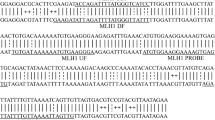Abstract
Circulating cell-free DNA (ccfDNA) can be found in various body fluids, i.e., blood (serum and plasma), urine, pleural effusions, and ascites. While ccfDNA predominantly originates from physiological processes, a fraction might be related to pathological events, e.g., cancer. Aberrant DNA methylation, which is considered a hallmark of cancer, can be assessed accurately in ccfDNA. Consequently, DNA methylation testing in body fluids represents a powerful diagnostic tool in the clinical management of malignant diseases. Frequently, however, the total amount of disease-related ccfDNA in a sample is low and masked by an excess of physiological ccfDNA. Thus, DNA methylation analysis of tumor-derived DNA is challenging, and high volumes of body fluids need to be analyzed in order to ensure a sufficient abundance of the analyte in the test sample. DNA methylation assays are usually based on prior conversion of cytosines to uracils by means of bisulfite. This reaction takes place under harsh chemical conditions leading to DNA degradation and therefore necessitates a proper DNA purification before downstream analyses. This article describes a protocol which allows for the preparation of ultra-pure bisulfite-converted DNA from up to 3 ml blood plasma and serum, which is well suited for subsequent molecular biological techniques, e.g., methylation-specific real-time PCR.
Similar content being viewed by others
References
Taby R, Issa JP (2010) Cancer epigenetics. CA Cancer J Clin 60:376–392. doi:10.3322/caac.20085
Jones PA (2012) Functions of DNA methylation: islands, start sites, gene bodies and beyond. Nat Rev Genet 13:484–492. doi:10.1038/nrg3230
Shen H, Laird PW (2013) Interplay between the cancer genome and epigenome. Cell 153:38–55. doi:10.1016/j.cell.2013.03.008
Diaz LA Jr, Bardelli A (2014) Liquid biopsies: genotyping circulating tumor DNA. J Clin Oncol 32:579–586. doi:10.1200/JCO.2012.45.2011
Desrochers LM, Antonyak MA, Cerione RA (2016) Extracellular vesicles: satellites of information transfer in cancer and stem cell biology. Dev Cell 37:301–309. doi:10.1016/j.devcel.2016.04.019
Dietrich D (2016) Current status and future perspectives of circulating cell-free DNA methylation in clinical diagnostics. LaboratoriumsMedizin 40:335–343. doi:10.1515/labmed-2016-0039
Frommer M, McDonald LE, Millar DS et al (1992) A genomic sequencing protocol that yields a positive display of 5-methylcytosine residues in individual DNA strands. Proc Natl Acad Sci U S A 89:1827–1831
Hayatsu H (2008) The bisulfite genomic sequencing used in the analysis of epigenetic states, a technique in the emerging environmental genotoxicology research. Mutat Res 659:77–82. doi:10.1016/j.mrrev.2008.04.003
Holmes EE, Jung M, Meller S et al (2014) Performance evaluation of kits for bisulfite-conversion of DNA from tissues, cell lines, FFPE tissues, aspirates, lavages, effusions, plasma, serum, and urine. PLoS One 9:e93933. doi:10.1371/journal.pone.0093933
Raizis AM, Schmitt F, Jost JP (1995) A bisulfite method of 5-methylcytosine mapping that minimizes template degradation. Anal Biochem 226:161–166. doi:10.1006/abio.1995.1204
Grunau C, Clark SJ, Rosenthal A (2001) Bisulfite genomic sequencing: systematic investigation of critical experimental parameters. Nucleic Acids Res 29(13):E65–E65
Tanaka K, Okamoto A (2007) Degradation of DNA by bisulfite treatment. Bioorg Med Chem Lett 17:1912–1915. doi:10.1016/j.bmcl.2007.01.040
Darst RP, Pardo CE, Ai L, et al (2010) Bisulfite sequencing of DNA. Curr Protoc Mol Biol. Chapter 7:Unit 7.9.1–17. doi: 10.1002/0471142727.mb0709s91.
Millar DS, Warnecke PM, Melki JR et al (2002) Methylation sequencing from limiting DNA: embryonic, fixed, and microdissected cells. Methods 27(2):108–113
Boyd VL, Zon G (2004) Bisulfite conversion of genomic DNA for methylation analysis: protocol simplification with higher recovery applicable to limited samples and increased throughput. Anal Biochem 326:278–280. doi:10.1016/j.ab.2003.11.020
Hayatsu H, Negishi K, Shiraishi M (2004) Accelerated bisulfite-deamination of cytosine in the genomic sequencing procedure for DNA methylation analysis. Nucleic Acids Symp Ser (Oxf) 48:261–262. doi:10.1093/nass/48.1.261
Hayatsu H, Shiraishi M, Negishi K (2008) Bisulfite modification for analysis of DNA methylation. Curr Protoc Nucleic Acid Chem. Chapter 6:Unit 6.10. doi: 10.1002/0471142700.nc0610s33.
Shiraishi M, Hayatsu H (2004) High-speed conversion of cytosine to uracil in bisulfite genomic sequencing analysis of DNA methylation. DNA Res 11:409–415
Warton K, Samimi G (2015) Methylation of cell-free circulating DNA in the diagnosis of cancer. Front Mol Biosci 2:13. doi:10.3389/fmolb.2015.00013
Dietrich D, Jung M, Puetzer S et al (2013) Diagnostic and prognostic value of SHOX2 and SEPT9 DNA methylation and cytology in benign, paramalignant and malignant pleural effusions. PLoS One 8(12):e84225. doi:10.1371/journal.pone.0084225
Acknowledgment
Conflict of Interest: Dimo Dietrich is a consultant for AJ Innuscreen GmbH (Berlin, Germany) and receives royalties from product sales (innuCONVERT kits).
Author information
Authors and Affiliations
Corresponding author
Editor information
Editors and Affiliations
Rights and permissions
Copyright information
© 2018 Springer Science+Business Media LLC
About this protocol
Cite this protocol
Dietrich, D. (2018). DNA Methylation Analysis from Body Fluids. In: Schulz, W., Hoffmann, M., Niegisch, G. (eds) Urothelial Carcinoma. Methods in Molecular Biology, vol 1655. Humana Press, New York, NY. https://doi.org/10.1007/978-1-4939-7234-0_18
Download citation
DOI: https://doi.org/10.1007/978-1-4939-7234-0_18
Published:
Publisher Name: Humana Press, New York, NY
Print ISBN: 978-1-4939-7233-3
Online ISBN: 978-1-4939-7234-0
eBook Packages: Springer Protocols




